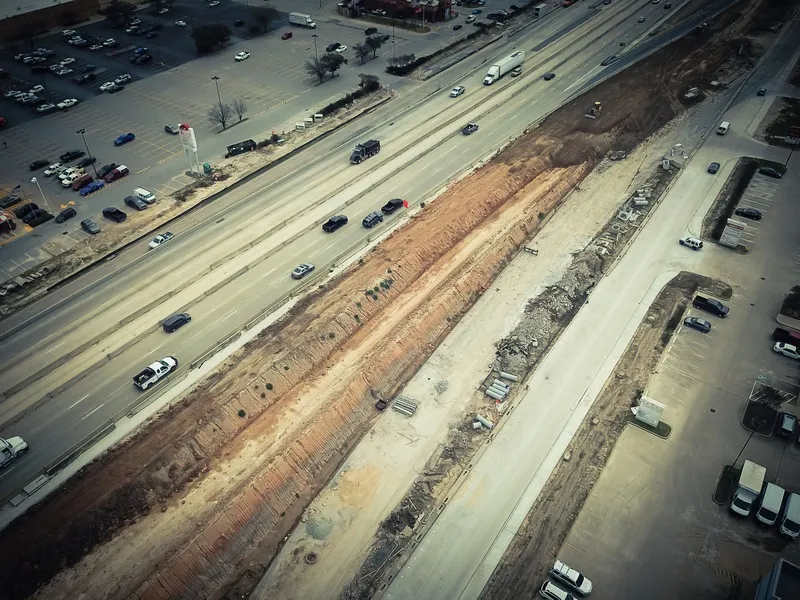During a visit to Brussels on 12 January, German Transport Minister, Alexander Dobrindt criticised the European Commission's infringement procedure against the German road tolls, expected to be introduced in 2017, reports EurActiv. “I'll tell Ms Bulc that her vision for an EU toll system, that clearly serves to burden German car drivers more, could break the German system. I have no support whatsoever for that proposal,” Dobrindt said of EU Transport Commissioner Violeta Bulc's recent comments about the con
January 15, 2016
Read time: 3 mins
During a visit to Brussels on 12 January, German Transport Minister, Alexander Dobrindt criticised the European Commission's infringement procedure against the German road tolls, expected to be introduced in 2017, reports EurActiv.
“I'll tell Ms Bulc that her vision for an EU toll system, that clearly serves to burden German car drivers more, could break the German system. I have no support whatsoever for that proposal,” Dobrindt said of EU Transport Commissioner Violeta Bulc's recent comments about the controversial tolls.
Bulc has called for a new, voluntary EU-wide toll system. She told German daily Die Welt last week, “There should be no discrimination based on nationality.”
Brussels expects more support from Berlin for a Europe-wide toll scheme, says EurActiv Germany. Transport Commissioner Violeta Bulc wants to put an end to the EU's various toll schemes and has rejected German Minister for Transport Alexander Dobrindt's proposed plans on the matter. According to Berlin's plans, Germans would receive discounts when using the country’s tolled roadways. This has been rejected by the Commission in the past, which cited unacceptable discrimination against non-German citizens.
Bulc told Die Welt that it is possible that the European Commission will present proposals this year that could serve "as the basis for a European toll system for trucks and cars".
Therefore, EU member states that have opted to toll their roadways would be organised into one single system. "I invite Germany to support us in this proposal," said Bulc.
"We need a European solution for road charges," she continued, adding that, "Many different toll systems are a barrier to mobility within the internal market."
On 10 December, the Commission sent the German transport ministry a request for more details about its road tolls to determine whether the new law discriminates against drivers from outside Germany. Germany has until 10 February to respond.
“We expect that there won't be any more delays from the Commission for the German infrastructure levy,” Dobrindt said, using the euphemism he coined for the tolls.
“We know the German infrastructure levy is compliant with EU law. If the European Commission has doubts about that, then the decision has to be taken by the European Court of Justice and the decision should be made fast without any further delay,” he added.
“I'll tell Ms Bulc that her vision for an EU toll system, that clearly serves to burden German car drivers more, could break the German system. I have no support whatsoever for that proposal,” Dobrindt said of EU Transport Commissioner Violeta Bulc's recent comments about the controversial tolls.
Bulc has called for a new, voluntary EU-wide toll system. She told German daily Die Welt last week, “There should be no discrimination based on nationality.”
Brussels expects more support from Berlin for a Europe-wide toll scheme, says EurActiv Germany. Transport Commissioner Violeta Bulc wants to put an end to the EU's various toll schemes and has rejected German Minister for Transport Alexander Dobrindt's proposed plans on the matter. According to Berlin's plans, Germans would receive discounts when using the country’s tolled roadways. This has been rejected by the Commission in the past, which cited unacceptable discrimination against non-German citizens.
Bulc told Die Welt that it is possible that the European Commission will present proposals this year that could serve "as the basis for a European toll system for trucks and cars".
Therefore, EU member states that have opted to toll their roadways would be organised into one single system. "I invite Germany to support us in this proposal," said Bulc.
"We need a European solution for road charges," she continued, adding that, "Many different toll systems are a barrier to mobility within the internal market."
On 10 December, the Commission sent the German transport ministry a request for more details about its road tolls to determine whether the new law discriminates against drivers from outside Germany. Germany has until 10 February to respond.
“We expect that there won't be any more delays from the Commission for the German infrastructure levy,” Dobrindt said, using the euphemism he coined for the tolls.
“We know the German infrastructure levy is compliant with EU law. If the European Commission has doubts about that, then the decision has to be taken by the European Court of Justice and the decision should be made fast without any further delay,” he added.









